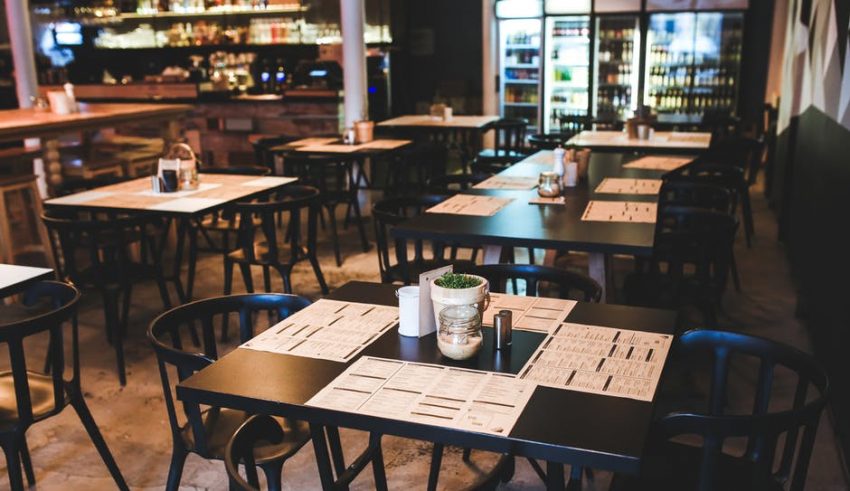
Opening a restaurant has been quite a popular dream for many in the last fifteen odd years in India. And going by statistics, it can turn out to be quite a successful one too since eating out has become a new culture in urban India owing to various reasons such as lack of time, corporate pressures, changing lifestyles and an ever-eager palette. If you are among those who are passionate about food and want to turn your passion into a profession, then setting up your own restaurant should be your goal.
Here are a few pointers on how to set up a small restaurant in India.
First Things First
Concept 
To begin anything new, especially if you are about to plunge into the food business, you need to have a solid idea in place. You cannot decide to serve almost anything and everything and expect your eatery to be a huge success. Before you begin your business, figure out what sort of a restaurant you want to open—cafes, diners, fast food joints, pubs, ice cream parlors Chinese or Italian etc. The restaurant needs to have a concept or an objective, this will act as the backbone of the entire business planning. Your theme will fast-track processes like deciding on the menu and the name of the restaurant.
Finding your Market
During this crucial decision-making phase, you should study the market in parallel, figure out the gaps and try to fit in your niche. You cannot have all types of cuisines and expect to make everyone happy. In India, the largest slice of the demographic mix pie is the age group of 25–45 years constituting almost 50 percent of the population. Do a market study to find out which people eat out the most and what is the most popular food. This should help you zero in on a target audience. Also, you need to think if you are passionate about a particular type of food, would that be a high-selling item in the market, or would you be successful in selling your unique idea to potential customers.
Also Read : Things to Know for Starting a Home Based Cooking Business
Where to Open
Finding the right location is a make or break situation for new restaurants. You need to factor in points like which areas have maximum footfall, parking areas, preference to ground floors, and available competition. When starting new, you should rely on locals to expand your reach, you cannot expect people to come from far to dine at your new restaurant. Hence, finding an apt locality is an essential starting point.
Planning it Right
Business Plan
Most restaurants fail in India due to lack of proper planning. Having a structured business plan before you launch your restaurant helps in getting investments, planning your costs and marketing your business. A good business plan has a detailed description of the business objectives, set-up costs, revenue estimates, marketing plans and management structure.
Also Read : Ways to Setup a Profitable Kitchenware and Home Essentials Shop
Investments
No business can kick start without funding. Unless you are a millionaire, you need to figure out a way to accumulate your capital. Banks provide loans if you have a promising business plan. You can also reach out to investors, this needs considerable persuasive and presentation skills. You can think big but its best to start small, having a small-scale business as your first venture creates enough room for mistakes.
Licenses 
In India, legal formalities can turn out to be quite a hurdle, mostly due to unorganized and unstructured processes. For a restaurant, a business license needs to be obtained from FSSAI (Food Safety and Standards Authority of India) at a cost of INR 5000 to 10000. Also, make a list of all the necessary permits and licenses required before to ensure smooth operations in future. Since it is a food business, a health safety certificate is needed along with fire department clearance. Registering your business should be done beforehand with a legal counselor’s help. You can register as an LLC (Limited Liability Company) or a sole proprietorship.
Setting Up
Kitchen Requirements
Once you have your funding, the next few important steps include the physical aspects of your restaurant. You need to set up a full commercial kitchen with equipment such as large ovens, freezers, blenders etc. The kitchen equipment needs to be fitting enough for mass-scale cooking. If the kitchen set-up costs exceed your budget, you can also consider renting the necessary equipment.
Interiors
Your restaurant space eats up most of your finances since rent is almost always sky-high especially in metro cities. The interior design of your restaurant is an essential ingredient for your recipe for success. Your restaurant should reflect the mood of your theme and concept. Hire upcoming designers who can transform your physical space into an upbeat and vibrant place. If you plan to open a café, consider keeping additional amenities like books or games, something to keep your customers engaged. Also, in today’s digital era, having a WiFi connection is ideal.
Designing the Menu 
Along with designing the interiors, you should pay close attention to the menu design. A good menu can grab eyeballs which can turn out to be quite profitable for you. Also, testing the menu before opening doors to the public is critical. Host a party for friends and acquaintances and work on their feedback.
Hiring Staff 
You can’t run a business all by yourself, a successful business has an efficient team behind it. You should carefully hire your staff either from an agency or from trusted sources. A restaurant in its very core needs to provide quality food to gain reputation, this, in turn, will ensure the sales. All the other features are secondary. Your kitchen staff needs to be appropriately trained as per your desired cuisine you wish to serve your customers. Also, your serving staff should have the necessary skills for customer service. Forming a relationship with your suppliers and vendors is crucial for the smooth running of a business. You will need wholesale food supplies and also vendors who provide cutlery and serving paraphernalia.
Pricing and Taxes
Price your items as per the market rates but also consider profit margins. For somebody new in the food business, money should not be the main concern, gathering the fame and popularity should be essential. Sales would follow eventually.
Like any other business, you need to pay taxes, gather from an expert source how much to pay and which taxes to be registered for. Since GST is applicable from July 2017, appropriate registrations need to be taken care of.
Promoting your Restaurant—Marketing and Advertising
Like any other business, you need to promote your brand. In today’s commercial world everything depends on advertising. Especially for a new restaurant, marketing needs to be done carefully. Here are few of the things you can consider.
- Put yourself on social media platforms and post updates of your new menu.
- Make sure you have an attractive name for your restaurant and a visually appealing menu. You can have interesting facts and photos alongside your list of dishes. Consider creating meaningful content to add an engaging element to your menu. Your name and menu can grab consumer attention through sites like Facebook and Instagram.
- Give discounts and free offers on your introductory week.
- Tie up with mobile apps who provide deals and place your offers on them.
- Open stalls in fairs and exhibition or host a tasting party to a few select customers.
- Engage with your customers regularly and maintain a relationship with them, respond to comments and reviews on sites like Zomato.
- Consider e-mail marketing by notifying your customers about your upcoming discounts.
- Keep special offers on occasions like Valentine’s day, Christmas, and Diwali. Corporate holidays should indicate heavy traffic for your business.
- Host events in your restaurant especially if your joint is a café or youth-centric place. You can keep karaoke events or live performances.
Also Read : 15 Profitable Business Ideas under 10 Lakhs Rupees
Wrapping it Up
In India, the restaurant business is growing at a considerable rate per annum. The industry is extremely dynamic and constantly evolving and innovating. To be a successful player in such an industry you need to put in some hard work and a lot of smart planning.
Things to Remember
- One of the key responsibilities is to always keep your eye on the ball. Being an entrepreneur you need to work hands-on and not just leave it to your hired manager and staff.
- Concentrate on the quality of food provided and take notice of the feedback received.
- Since the food service industry is completely customer oriented, you need to be extra cautious while handling your customers.
- Prioritise on hygiene and cleanliness of your premises and kitchen
- Consider creating a niche of your own providing something which is unavailable anywhere else.
So, most importantly do your homework and plan it right before you venture out on your food journey!